Life abroad can appear incredible through the lense of social media. Lapping up scenic vistas over delicious food and drinks in historic locations is incredible. Life is about priorities, and for years we’ve put the freedom of travel at the top of our list. Traveling around Europe has been easier because we’ve lived on the continent for over 5 years. And while there are many wonderful aspects about life overseas, there are also challenges of living abroad. Here are some of the biggest obstacles, with tips on overcoming them!

Finding a Place to Live in a Foreign Country
Housing is certainly one of the great challenges of living abroad, which varies greatly depending on your location and budget. When Bell and I moved to Amsterdam five years ago our budget was limited and housing in Amsterdam is pricey. We were earning less money than we did in Tampa but had to pay more in rent as foreigners (you really have to know people to get fair deals in the Dutch housing market). Most of the time housing advertisements were only posted in Dutch, which neither of us spoke. Long story short, in the 3 and 1/2 years we lived in Amsterdam, we faced some housing challenges.
Ireland has been far better in terms of housing for us and we can definitely say it’s better for renters than Holland. In the Netherlands, prospective renters typically need to go through a rental agency. This costs the renter the equivalent of 1 months rent, paid to the agency. In Ireland, the owner pays the agency fee. When we resided in Holland, we were not in a financial position where we could spend the agency fee, making it more difficult for us to find a suitable apartment in Amsterdam. In Dublin, our budget was a little higher. But it was a huge relief to not have to spend a big chunk of money to find a nice apartment within our budget.
Even in countries like the Netherlands, there are ways around paying the agency fee. The University of Amsterdam initially helped us to find a short term apartment. Then we found a longer term place thanks to Dutch friends. Social media, especially Facebook groups on housing can be helpful. Just be sure to vet the landlord also!
If you’re in a financial position to buy a house or apartment, it can be a great investment. I wrote an article all about property locations in Greece to consider buying. A housing investment starting at around €200,000 ($213,000 USD) can put you a path to European Union residency!
Finding a Job
Finding a job is at the top of the challenges of living abroad for most. But some people move to another country with a job already lined up, like we did in the case of Bell in Amsterdam. My situation was more difficult, when the economy crashed in 2008 most of the English speaking jobs in the Netherlands dried up.
Most Dutch people speak English and often another language anyway. So if there is a shortage of jobs, good luck if you only speak English when that isn’t the official language of the country. Of course, the Netherlands and other countries are home to multinational companies, so it depends on your skillset. LinkedIn can be a great resource for finding employment.
On the other end of the spectrum, if you’re not fussy, there is often under the table pub or hostel work in touristy destinations. In that instance, you may be able to circumvent that pesky work visa in the short term. Just be careful if you choose to go that route, be sure not to break any additional laws!
Missing Family and Friends
Bell and I both care very much about our families and are fortunate to have some relatives living in Europe. As for immediate family, I’m American and Bell is Australian, so if we lived close to one home we’d always be very far away from the other…The solution, so it doesn’t seem like we’re giving preferential treatment?…To live far away from everyone! But in all seriousness, it’s tough to live a long distance from family and often go over a year without seeing parents or siblings.
We’ve made great friends abroad through meet up events and work colleagues. Meetup is a great resource for making friends. Search Meetup’s website for group meetings that suit your interests – like photography, travel, yoga, craft beer, dating, etc. Social media platforms like Instagram can of course also be great ways to make new friends, or even find your soul mate. In the past, we made some great expat friends through Couchsurfing meetups, but that’s less of a thing now.
At least it’s not the old days where even in the Western world, some people left home and went decades without seeing their parents, or never saw them again in their lifetime. Up to the 1950’s, emigration of children was like a death sentence to parents in countries like Greece, Italy and Ireland to name a few. My father emigrated from Greece to the United States in 1953 and did not return to his home country for 22 years.
Learning a Different Language
Translation apps that you can download on your phone, like Dictionary, can be immensely helpful. Google translate is another great resource for online language study. The more you can learn before you travel, the better.
When we travel to the west coast or certain rural parts of Ireland, communicating with locals in English can be very challenging…mostly kidding! Sometimes even when the official language is not English, but nearly everyone speaks English, like in Holland, there is a negative side effect to the short term conveniences that come when you can communicate with locals for everyday needs. The incentive to learn the local language can diminish when it’s possible to work and do daily errands solely speaking English.
If you live in a country where you need to speak the local language for daily living, it forces research and learning. This also better assimilates people into different cultures. The prevalence of English in countries like Holland is wonderful on the surface, but necessities like insurance, banking and taxes will always be filed in the local language.
Different Foods and Customs
We are not picky eaters so this applies less to Bell and I, but can certainly be one of the challenges of living abroad to others. Many countries are big meat and potato consumers. The US, Canada, Australia, Netherlands and Ireland have similar diets, often with subtle differences in preparation. I once read someone complaining about eating “weird food” in Holland, a dish called stampot. Stampot is basically mashed potatoes mixed with spinach and topped with a sausage and gravy. Bangers and mash anyone?
Of course there are picky eaters, and many countries have western chains that are a reminder of home. We’ve only visited Asia, not lived there. I would say after awhile food might actually become an issue if we lived in Asia. You can eat good western style food in many parts of Asia, but it’s far more expensive to do so.
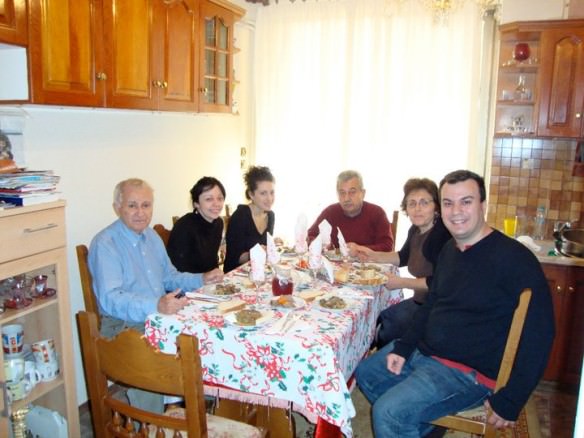
Living Abroad Conclusion
Something to keep in mind is that the novelty of living abroad typically wears off. The honeymoon period usually lasts about a year. Afterwards, it’s easier to become homesick and take the adventure for granted. All the cute little Dutch towns started to look the same after a year. Oh, just another pub dating back to the 1800’s!
It’s important to have a solid group of friends as a support network. And expat friends can bond quickly when similar life circumstances overlap. The problem with expat friendships is that they can be short lived as people are more transient. You will stay in contact, but it’s usually not the same after a close friend moves away.
In Ireland we keep ourselves occupied by constantly being on the lookout for those elusive leprechauns, a fun task that distracts us from the challenges of living abroad.

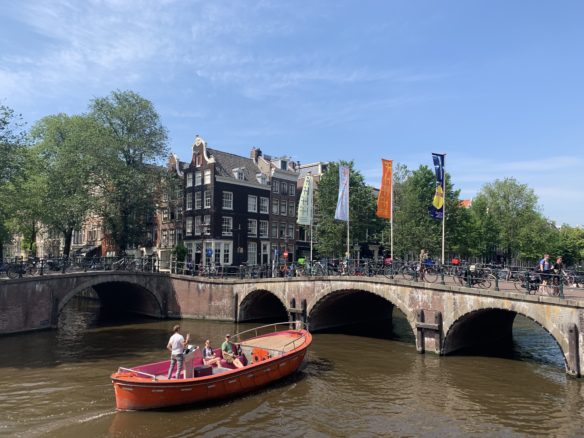
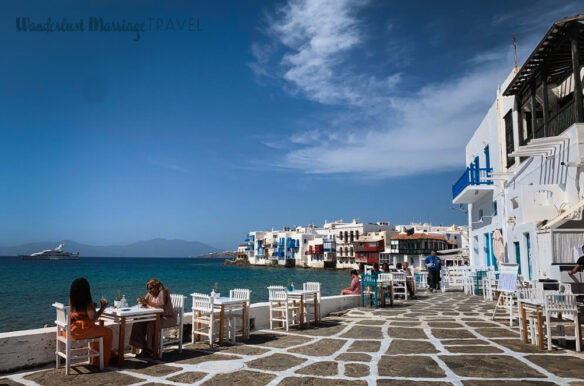
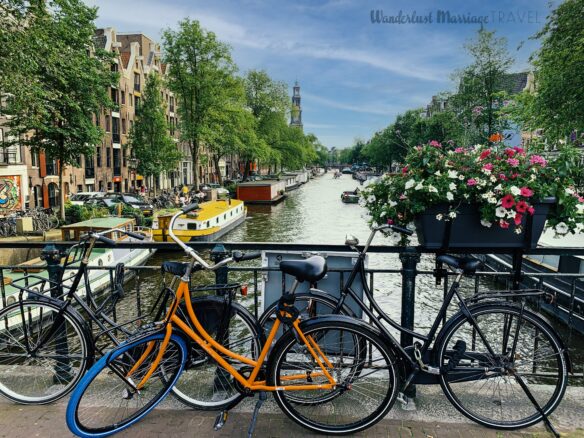

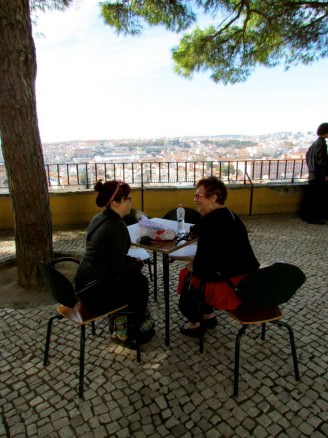
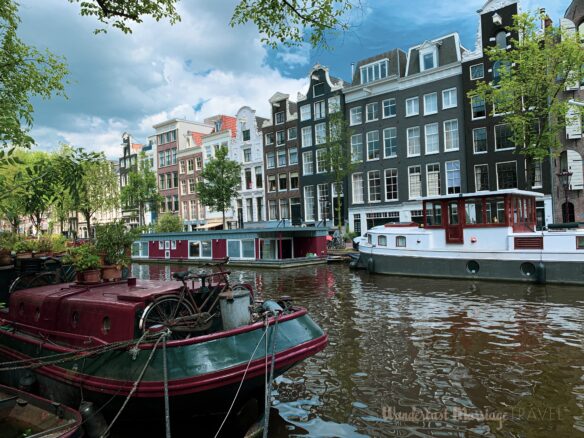
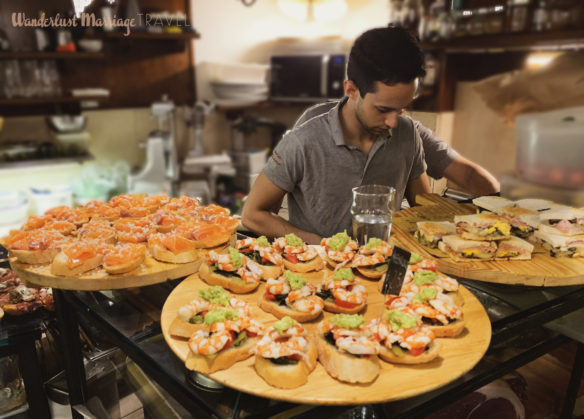
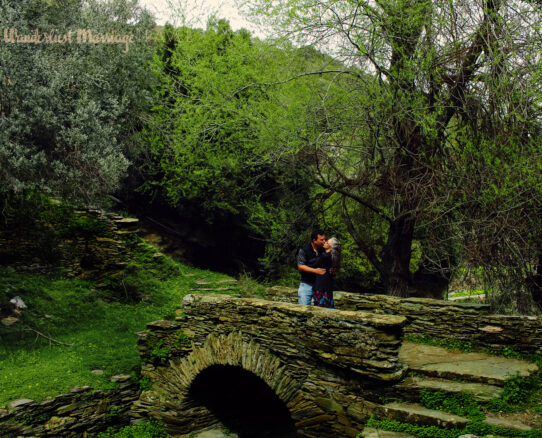




 Sentosa Island, a Man Made Beach in Singapore
Sentosa Island, a Man Made Beach in Singapore  A Unique Non-Profit bar: Shebeen in Melbourne
A Unique Non-Profit bar: Shebeen in Melbourne
Among the ones you mentioned, the hardest for me are language and food. Language because not matter how good you are in German (and I’m not!), people in Switzerland will still keep speaking dialect, which is hard to understand even for Germans.
I’m not picky with food, but I like to eat helthy, and here such a attitude seem to be absent in people’s mind. It is very difficult to escape meat or dairy products here. I was shocked to find dairy products in almost every food when I started to read tags in supermarkets.
However, those “problems” are really not affecting my mood. I’m still extremely happy to live abroad, like I were predestined to be an expat.
Hey Tuscan- I feel you on the dairy! I’m lactose intolerant (to cow’s milk). Thankfully I can better digest goat and sheep’s milk but these aren’t staples in the Irish diet. This can be a challenge going out even in any English speaking country because wait staff doesn’t always know if there’s dairy in certain foods. Though service in Ireland is generally pretty good so if they don’t know they’ll check with staff. This is obviously more of a challenge in non-English speaking countries so I always look up how to ask if there is dairy.
One of the biggest challenges about living in Ireland is the weather. I left that off the list though because some people are expats who previously resided in bad climates and moved to good ones. I left Florida though! So no summer gets to me.
How long have you been living in Switzerland?
Ditto! we just got back from a trip and we only stepped into one castle but that was like for 5 secs .. how sad!… its true, honeymoon period is over after seeing so many castles and cathedrals. ( especially living in spain where towns have so many cathedrals and the huge one in seville, then there is the biggest at vatican- been there twice ) The only excitement i got from a castle of late was when we celebrated the marine corps ball in a 12th century castle where christopher colombus lived while mapping the americas! this is only a 15 min drive from our house… can it get any better than that? We also stayed in a castle in tuscany looking over a vineyard in Italy.. am i ever going to appreciate anything old ever again considering we live near (15min) a ancient ruin sight that dates back 1200 bc that was occupied by the phoenicans!? i need to go to egypt( i want too but the unrest is abit dangerous) however once we retire in australia we plan to travel heaps in oz and see the vast lands that the aborgines had for 40,000 year! havnt been to aluru yet and they say thats from the Paleozoic era (541 to 252.2 million years ago!)
Thanks for sharing these amazing experiences Carolyn! Wow, that is a lot of wonderful castles and cathedrals you guys have witnessed!! Having the Marine Corps. Ball in a castle where Columbus mapped the Americas is just awe inspiring! I would love to see that- would be great to see some of Columbus’s doodles as he planned to set off to score wonderful booty for the Spanish court. What adventure! 🙂
Personally we tend to take the scenery in our new home countries for granted the most, after the first year. Over the summer we had the incredible opportunity to eat at the foot of an amazing cathedral in the Bordeaux region of France, in gorgeous UNESCO World Heritage town St. Emillion. It was fantastic, one of our all time favorite towns, and we could have spent all night there had we not had to catch a train back to Bordeaux. There are certain things in life, some even small, that never get old.
We’ve been looking into a potential trip to Egypt soon ourselves. I was briefly there some years back and saw the pyramids and Egyptian museum- Cairo is quite a city! It’s not a great time to visit, but would be awesome to do a cruise down the Nile one day…Love you guys’ plans to experience ancient aboriginal lands in Australia. Would love to see that some day as well. Cheers and happy travels! 🙂
For me, I used to live in London for studying university, one the most difficulties is Food, yes, I missed the food my mom usually cooked and while in London, I had to learn everything and learn how to cook myself
Sometimes there’s nothing like a homemade meal from your home country…Especially when you grew up somewhere with very different food- like Vietnam and England!